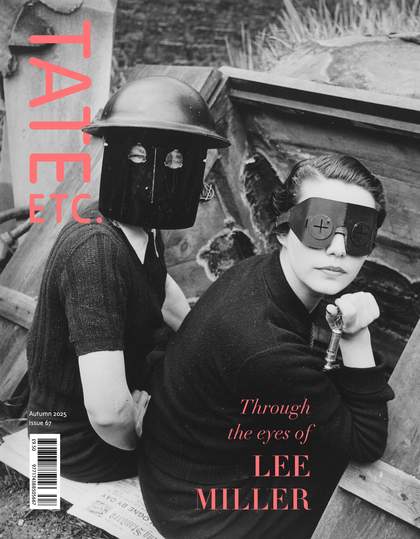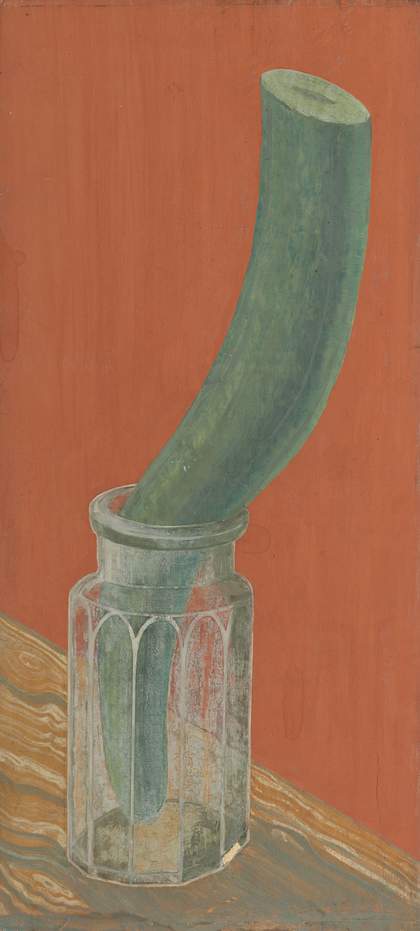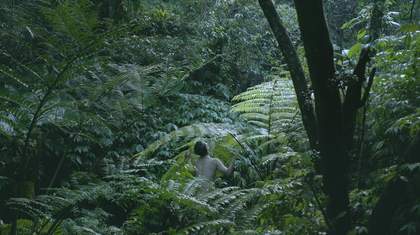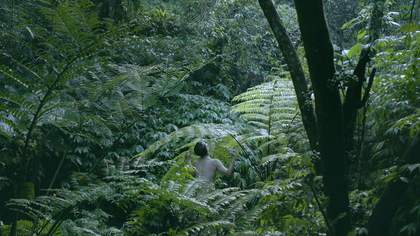
Still from Zheng Bo’s 17-minute video Pteridophilia I 2016
© Zheng Bo
Pteridophilia is a film project that I started in 2016, in a forest on the edge of Taipei in Taiwan. It explores intimacy between men and ferns, which are pteridophytes, a group of non-flowering plants with complex sexuality.
When I began Pteridophilia, I didn’t yet know the term ‘ecosexual’ or the movement associated with it, which celebrates a loving and sensual relationship with nature. Ferns, I discovered, have reproductive habits that elude traditional sexual dichotomies. The fern plant that we see growing in our forests produces spores. A spore enters the soil and grows into a small plant, known as a gametophyte, that produces on its leaves both eggs and sperm. A flagellate sperm fertilises an egg, which then grows into a new fern plant. In this way, ferns don’t conform to categories like male or female, straight or gay. That, to me, is liberating.
The men who feature in Pteridophilia I, the first of what is currently five films in the series, came from different walks of life. Many had a background in independent theatre, but there was also a psychologist, a designer, and a travel agent. In casting sessions, I always bring along a living fern and observe how each person interacts with the plant. Some, especially those trained in commercial theatre, treat the plant like a prop. I prefer to work with people who can approach the plant as a living being, with its own desires and agency. I don’t think we can fully understand what a fern wants, but we need to be willing to try.
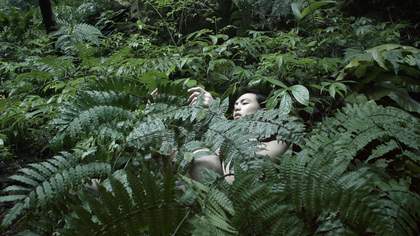
Still from Zheng Bo’s 17-minute video Pteridophilia I 2016
© Zheng Bo
The approach during Pteridophilia I was about subsistence and simplicity. I didn’t want to build an elaborate production. I was interested in whether it was possible to find connection, pleasure, erotic charge, without relying on a massive apparatus. We didn’t work with scripts. We experimented on site, in the forest, with living plants.
While making the film, I also started to wonder whether ferns could be allies in Taiwan’s journey towards decolonisation. Taiwan has lived through multiple waves of colonisation: by Japan in the first half of the 20th century, and then by the Nationalist government from mainland China. Both largely ignored the island’s ferns, despite the plants’ vibrancy and allure, and enduring closeness with Indigenous communities. Taiwan has the highest density of fern species in the world, and ferns have been growing on the island for far longer than humans have been living there. Their persistence suggests that they might offer more than aesthetic beauty or ecological function. Perhaps they can also help us to imagine other ways of relating to place and history.
Looking back, I have also been reflecting on how human-nonhuman entanglements are hardly new ideas. Japanese art offers a striking example in Hokusai’s woodblock print The Dream of the Fisherman’s Wife 1814, in which a woman is depicted sexually entwined with two octopuses. And nature has its own versions of this, too: certain orchids have evolved to look and smell like bees, so that bees are lured in and attempt to mate with them. This phenomenon is known as pseudocopulation. Interspecies desire isn’t a human invention – it’s been around for millions of years.
Pteridophilia I was purchased with funds provided by the Asia-Pacific Acquisitions Committee in 2024 and is included in the free collection exhibition Gathering Ground, Tate Modern, until 4 January 2026.
Zheng Bo is an artist who lives and works in Hong Kong and New Caledonia.

